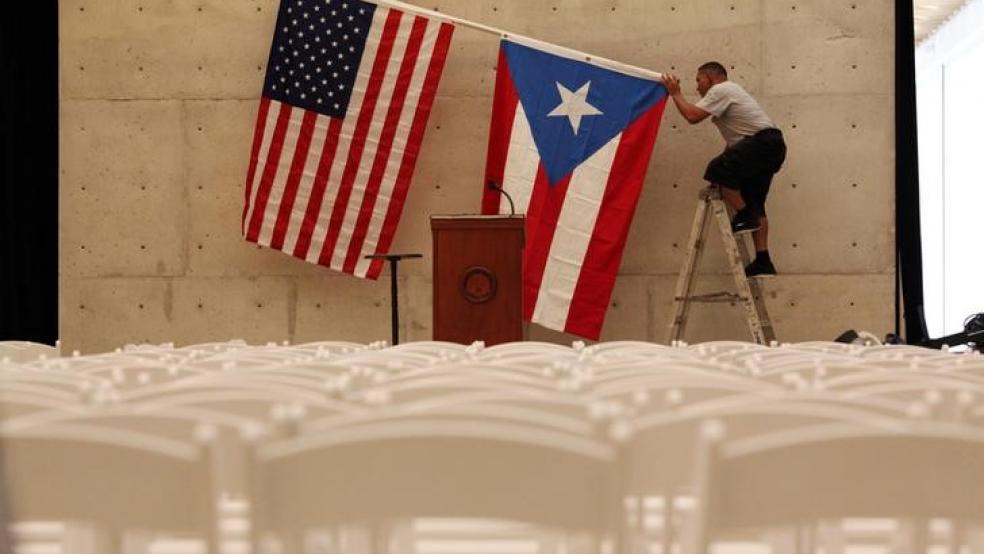Puerto Rico got the lifeline it was seeking from Congress on Wednesday as it struggles with a $72 billion debt crisis that is threatening to take down its economy. Just two days before it faced defaulting on $2 billion of government obligations, the Senate approved final passage of the financial rescue package, 68 to 30.
The vote capped months of debate and intense lobbying over whether Puerto Rico was entitled to the same federal bankruptcy protection that Detroit and other municipalities have received as they navigate their financial crises, or whether the U.S. territory had to fend for itself in negotiating with angry creditors seeking their money.
Related: Everything You Need to Know About the Puerto Rico Debt Crisis
Congress ultimately settled on a half-measure that denies Puerto Rico access to the full protections of the federal bankruptcy laws but creates a framework to restructure the debt and force many creditors to take a haircut. But even that hard-won federal assistance will come at a steep cost to Puerto Rico in terms of loss of control of their financial and economic destiny to a new five-member federal panel.
Even before President Obama had a chance to sign the new legislation, island officials and financial experts were warning that Puerto Rico is neither out of the woods or immune to further defaults on billions of dollars of obligations.
Puerto Rico Gov. Alejandro Garcia Padilla acknowledged late last week that the commonwealth would not be able to cover payment of the full $2 billion due on Friday. A little more than $800 million of that total constitutes principle and interest on general obligation bonds that take precedent over all other debt under Puerto Rican law.
Garcia Padilla indicated during a seminar in Washington at the Center for American Progress Action Fund that while he can probably scrape together enough money to cover the general obligation debt, payments to other creditors and government agencies will have to wait.
Related: Puerto Rico’s Fiscal Crisis Has Been Brewing for 75 Years
“If I shut down the government, I will not have enough money to pay,” the governor lamented, according to Bloomberg.
Ted Hampton, senior credit officer at Moody’s Investors Service, said that Puerto Rico will almost certainly default Friday for the fourth time in the past year. He questioned whether the commonwealth can even cover all of its general obligation bonds.
“Regardless of the creation of the oversight board, the missed payments on July 1 will constitute defaults,” Hampton told Reuters. “I expect they will not cover all of the GO [general obligation] payments.”
Puerto Rico, with a population of about 3.5 million, has struggled for years not only with an unsustainable debt but a stagnant economy that has prompted many residents to depart for Florida and other areas of the U.S. mainland. In the process, the territory’s tax base has shrunk, making it harder and harder for officials to meet their obligations.
Related: Could Puerto Rico Be Saved by Becoming the 51st State?
The five-member oversight board – similar in some ways to the control board that helped lead New York City out of its 1975 financial crisis – was created by the House and Senate to audit Puerto Rico’s government and draft new fiscal plans and budgets.
Although the island commonwealth will not be granted broad bankruptcy protection under the new legislation, the oversight board will be empowered to determine the extent of debt restructuring that will be needed, and seek federal court supervision of negotiations between Puerto Rico and its creditors.
Treasury Secretary Jack Lew and the Puerto Rican governor lobbied intensely to overcome strong opposition to the legislation from business groups and others who argued the bill would prove unfair to creditors and set a bad precedent.
Sen. Robert Menendez (D-NY), meanwhile, argued for more than four hours on the Senate floor that the legislation would deny Puerto Ricans their political rights while not guaranteeing a solution to the debt crisis, according to The Washington Post.





